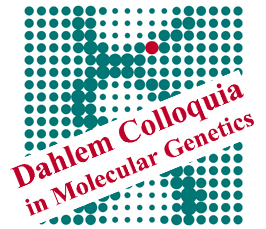Dahlem Colloquium: "SMCHD1: To Have, or not Have, a Nose"
- Date: Jul 1, 2019
- Time: 11:00 AM - 12:00 PM (Local Time Germany)
- Speaker: Bruno Reversade
- KOÇ University, Turkey Amsterdam UMC, Netherlands IMB & IMCB, A*STAR, Singapore
- Location: Seminar Room SI, Tower 3
- Host: Bernhard Herrmann, Department Herrmann

Arhinia is an extremely rare syndrome characterized by the complete absence of the nose at birth. In 14 human cases studied, we identified de novo missense mutations in the epigenetic regulator SMCHD1 that segregated with this striking condition (C. Gordon et al., 2017). Such findings are in contrast to the SMCHD1 loss-of-function mutations that cause a late onset muscular dystrophy known as FSHD2.
Our biochemical tests and in vivo assays in Xenopus suggested that arhinia mutations behaved as gain-of-function. On the contrary, N. Shawn et al. (2017) argued they were loss-of-function alleles based on their observation that smchd1 zebrafish crispants displayed craniofacial anomalies.
To resolve this conundrum, we generated true maternal zygotic smchd1 knockout zebrafish. Although these did not phenocopy any of the reported arhinia features, we uncovered an unsuspected maternal-only role for smchd1 in the establishment of the vertebrate body plan via regulation of the HOX code. Together, our results suggest that HOX epimutations brought about by the loss of SMCHD1 during oogenesis have long lasting consequences into adulthood which cast a new light on the pathogenesis of Arhinia and FSHD2 in humans.
SHORT BIOGRAPHY
Bruno was trained as a developmental biologist in the HHMI laboratory of Prof. Eddy De Robertis at UCLA. After his PhD in 2008, he was awarded the inaugural A*STAR investigatorship and set up his team at the Institute of Medical Biology in Singapore. There, he switched to human genetics, placing emphasis on monogenic, fully penetrant and unique genetic traits as a means to understand complex and common diseases.
Combining the power of Mendelian genetics, patient-derived organoids and animal modeling in zebrafish, Xenopus and mice, his team has resolved various human disorders affecting embryogenesis, metabolism, ageing, cognition and familial cancers. Some of these discoveries have been licensed and are being developed for therapeutic purposes.
Bruno is a Research Director at A*STAR in Singapore, a fellow of the Branco Weiss (Switzerland) and National Research (Singapore) Foundations, the first EMBO Young Investigator based outside Europe, and a distinguished Professor of Genetics at KOÇ University (Turkey) and Amsterdam UMC (Netherlands).